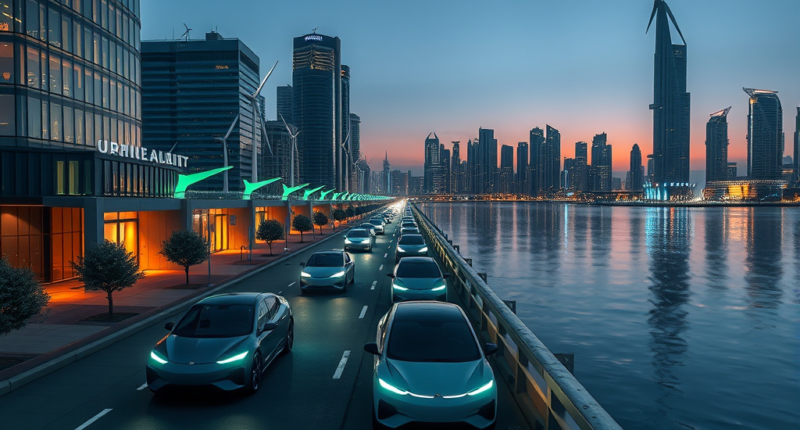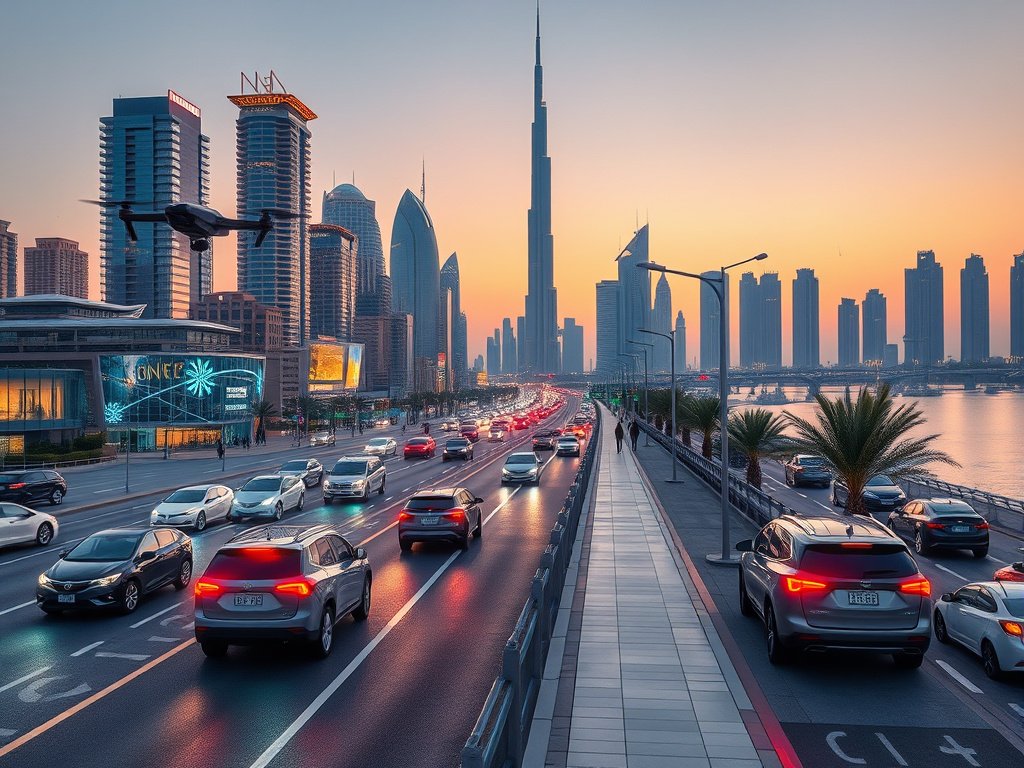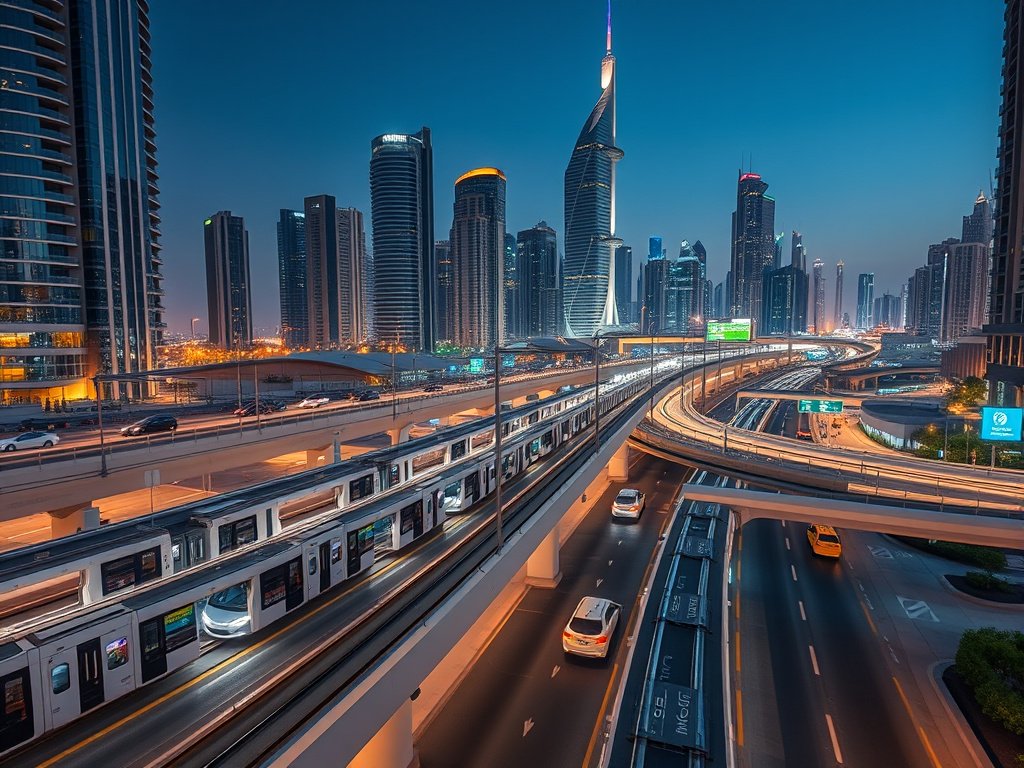Dubai Unveils Comprehensive Smart Mobility Plan Aiming for a Greener Urban Future
Dubai announces a comprehensive Smart Mobility Plan designed to accelerate a greener, more efficient urban transport network. The initiative, backed by government bodies and private partners, sets a roadmap for sustainable transit, intelligent infrastructure, and synchronized policies across sectors.
Key components: The plan integrates public transit expansion, EV adoption, micro-mobility regulation, and digital platforms to optimize traffic flow and reduce carbon emissions. It includes a phased rollout of autonomous shuttles in pilot districts, upgraded charging networks, and real-time multimodal travel information for residents and visitors. Highlights include a target to cut transport-related emissions by a significant margin by 2030, and a commitment to achieve measurable improvements in last-mile connectivity and air quality.
Quotes: Officials emphasize that the plan aligns with UAE energy and climate goals, noting: “This initiative will transform how people move around the city, making Dubai safer, cleaner, and more connected.”
Data points: Projected reduction in peak-hour congestion, expansion of green corridors, and a substantial increase in transit modal share are expected as the network scales. Investments cover smart traffic management systems, vehicle-to-everything (V2X) communications, and data platforms to support city planning and private sector innovation.
Implementation: The rollout will occur in stages across key districts, with pilot zones testing autonomous services, curbside management, and integrated ticketing. Regulatory updates will enable interoperable systems and incentivize green mobility choices for residents and business fleets.
The plan is designed to support Dubai’s ambition to be a global hub for sustainable urban living. By improving mobility efficiency, reducing emissions, and fostering tech-driven economic activity, the initiative is expected to attract investment, enhance quality of life, and position Dubai as a model for smart, green city development in the UAE.
As Dubai advances its Smart Mobility Plan, observers will watch how coordinated policy, private-sector collaboration, and citizen engagement translate into tangible environmental and economic benefits for the city and the UAE at large.
Key Phases of Dubai’s Smart Mobility Initiative: Infrastructure Upgrades and Sustainable Transportation Trends
Dubai continues to advance its Smart Mobility Plan with a detailed emphasis on phased infrastructure upgrades and forward-looking transportation trends. The initiative outlines a strategic blueprint to modernize urban mobility, expand sustainable transit options, and integrate new technologies across the city’s transport network.
The plan delineates a multi-stage approach to upgrading transport corridors, charging ecosystems, and data-driven traffic management. In the initial phase, the focus is on upgrading core corridors with high-capacity transit lanes, expanding electric vehicle (EV) charging infrastructure, and implementing adaptive traffic signaling to improve flow during peak periods. Subsequent phases target the deployment of autonomous shuttles in designated districts, enhanced last-mile connectivity through micro-mobility hubs, and the rollout of interoperable digital ticketing that consolidates multiple modes of transport into a seamless user experience.
Key data points include projected reductions in peak-hour congestion, a measurable uptick in public transit modal share, and a substantial expansion of green corridors that support non-motorized travel. Industry stakeholders note the alignment with UAE energy and climate objectives, reinforcing Dubai’s commitment to lower transport emissions and improved air quality.
Quotes from officials emphasize cross-sector collaboration: “This phase-based plan ensures scalable implementation, enabling pilot districts to test autonomous services, curbside management, and real-time multimodal information that residents and visitors can rely on.”
From a logistical perspective, the initiative leverages vehicle-to-everything (V2X) communications, data platforms for urban planning, and private-sector partnerships to accelerate innovation while maintaining robust safety and regulatory standards.
The phased infrastructure upgrades are set to redefine how residents navigate Dubai, fostering a more sustainable urban fabric and supporting a dynamic business environment. By improving reliability, reducing emissions, and enabling smarter lane management, the plan positions Dubai as a global model for smart city transportation and a magnet for foreign investment in green mobility technologies.
As Dubai advances through the phased rollout, observers will monitor performance metrics, rider satisfaction, and the economic benefits flowing from a more connected and eco-friendly transport system. The initiative underscores Dubai’s broader ambition to lead in smart mobility and sustainable urban living within the UAE.







